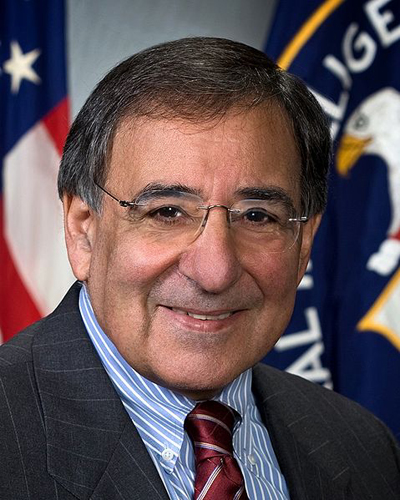WASHINGTON, Nov 21:
Al Qaeda has significantly weakened in Afghanistan and Pakistan with its capacity to launch major attacks diminished, but the “cancer has metastasized” to other areas and there is need to prevent “new safe havens”, US Defense Secretary Leon Panetta has said.
Addressing an audience here, Panetta said due to a relentless campaign, al Qaeda’s ability to carry out a large-scale attack on the US has been seriously impacted, and as a result the US is safer against a 9/11-type attacks.
“These gains are real. But it is important to point out that even with these gains, the threat from al Qaeda has not been eliminated. We have slowed the primary cancer – but we know that the cancer has metastasized to other parts of the global body,” he said.
Panetta said the US will continue to fight al Qaeda in Afghanistan and its commitment to the region is long term.
“We are not going anywhere; our commitment to Afghanistan is long-term; you cannot wait us out. This is important because al Qaeda, the Taliban, and their associated forces under pressure in Pakistan continue to view the rugged terrain of Northeastern Afghanistan – especially Kunar and Nuristan provinces – as a viable safe haven.
“A relentless and effective counterterrorism effort conducted by our Special Operations Forces this year made clear that we will not allow them to regain that sanctuary.
“As a result of prolonged military and intelligence operations, al Qaeda has been significantly weakened in Afghanistan and Pakistan,” he said.
Panetta said al Qaeda’s most effective leaders had been eliminated, its command and control degraded, and its safe haven was shrinking, with the result that its ability to carry out a large-scale attack on the US has been seriously impacted.
Panetta said the US first dramatically expanded counterterror operations on the Af-Pak border, and parallel to it launched a resourced effort to help build an Afghanistan that can secure and govern itself.
“Over the last few years, al Qaeda’s leadership ranks have been decimated. This includes the loss of four of al Qaeda’s five top leaders in the last two and a half years alone – Osama bin Laden, Shaikh Saeed al-Masri, Atiyah Abd al-Rahman, and Abu Yahya al-Libi,” he said.
“Through what has probably been the most precise campaign in the history of warfare and by partnering with local allies, numerous other experienced operational leaders and commanders in the region have been killed or captured.
“This pressure has significantly demoralised and weakened al Qaeda core’s capabilities, and seriously disrupted active plotting against our homeland,” he said.
Panetta said despite challenges in the bilateral relationship between the US and Pakistan, one area in which their national interests continue to align is defeating the terrorists on Pakistani soil that threaten both countries.
“We remain committed to pursuing defense cooperation based on these shared interests. We must prevent the emergence of new safe havens for al Qaeda elsewhere in the world that could be used to attack the United States or our interests.
“The last decade of war has shown us that coordinated efforts to share intelligence and conduct operations with partners are critical to making sure that al Qaeda has no place to hide.
“We will expand these efforts, including through support and partnership with governments in transition in the Middle East and North Africa,” he said. (PTI)
Trending Now
E-Paper


